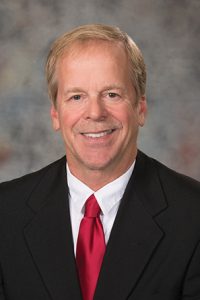COVID-19 liability protections advanced
Senators advanced a proposal from general file May 11 intended to prohibit frivolous coronavirus-related lawsuits.

LB139, sponsored by Albion Sen. Tom Briese, would provide “safe harbor” from potential lawsuits alleging that a protected individual or organization — including health care providers, first responders, schools, restaurants, businesses, churches and senior care facilities — negligently exposed an individual to COVID-19 infection.
The bill would prevent civil action unless an individual is diagnosed with a case of COVID-19 that requires in-patient hospitalization or results in death and can prove, by clear and convincing evidence, that the condition occurred through gross negligence or willful misconduct.
Briese said lawmakers must do everything possible to help the state and its residents recover from the ongoing coronavirus pandemic.
“As they struggle to recover from the impacts of the COVID-19 pandemic, many folks are faced with the threat of needless, unwarranted COVID-related lawsuits,” he said. “[LB139] can provide a level of confidence for businesses to reopen and help our economy to recover.”
A Judiciary Committee amendment, adopted 36-0, replaced the bill.
The amendment would narrow the safe harbor protections proposed in the original bill to prohibit civil actions as long as the protected individual or organization was acting in compliance with federal public health guidelines.
Peru Sen. Julie Slama supported LB139, which she said would help restart the state’s economy.
“[This would] ensure that when Nebraska says, ‘we’re open for business’ … that our businesses, whether they be large or small, can be open and available to our communities without fear of unnecessary lawsuits,” Slama said.
Omaha Sen. Steve Lathrop offered an amendment containing provisions of his LB53 that would implement a health care crisis protocol developed by the Nebraska Medical Emergency Operations Center.
The protocol would establish criteria for the triage and application of medical services and resources under extraordinary circumstances when the level of demand for services exceeds the available resources required to deliver the generally accepted standard of care.
Lathrop said Nebraska came dangerously close to rationing medical care last year when COVID-19 infections in the state were at their highest.
“If you are an emergency room physician, you want to make a decision that is based upon … not value judgments of the patient in front of [you], but the likelihood that they are going to survive and benefit from the medical care,” he said.
Following the 36-0 adoption of the Lathrop amendment, senators voted 39-3 to advance LB139 to select file.


